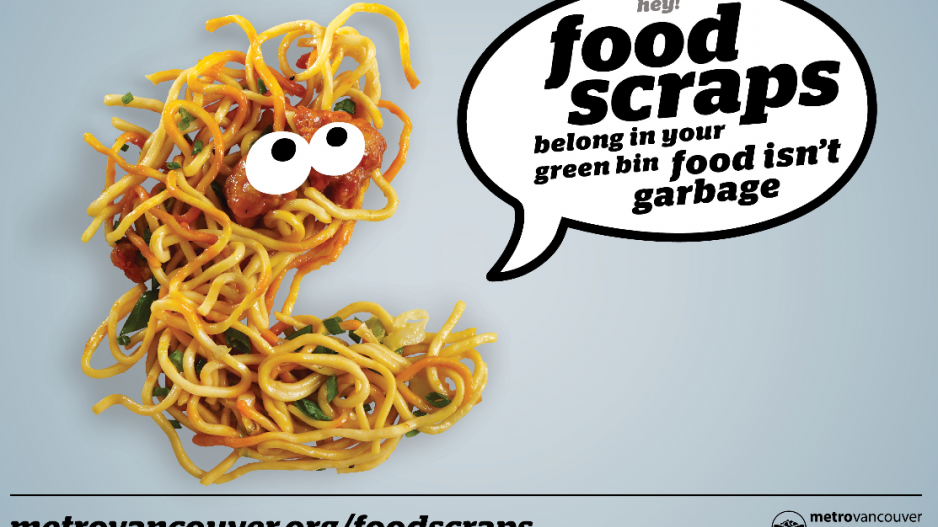Metro Vancouver is hoping an adorable mascot made out of pasta leftovers will convince residents that “food isn’t garbage.”
The regional district introduced an ad campaign October 15 featuring animated fruit, vegetables and half-finished meals imploring people to compost.
“We think that children and young people will gravitate to these large advertisements and hopefully reinforce for their parents and the adults in their lives [of] the need to keep food out of the garbage,” said Malcolm Brodie, mayor of Richmond and chair of Metro Vancouver’s Zero Waste Committee, in a press release.
By 2015, Metro Vancouver residents and businesses must stop putting organic waste, like food leftovers, in the garbage. Private sector waste haulers and large-scale compost operations have been gearing up for the ban.
However, small business owners say they need more help to implement new systems as the ban approaches. Mike Wiebe, the owner of Eight and a Half restaurant and vice president of the Mount Pleasant Business Improvement Area, recently completed a pilot project with seven restaurants in the area.
Six of those restaurants have continued to compost, Wiebe told Business in Vancouver.
“It was not easy,” he said. “They have to change the way they do business, where they put their bins in, how it’s going to work, who’s paying for it, who’s collecting it, you have to make your garbage smaller because you don’t want to be paying for both.”
Metro Vancouver has one staff member dedicated to working with businesses across the region to implement the ban. Wiebe said that wasn’t enough.
“Most small restaurant owners are just trying to make it and to deal with a compost issue just seems like too much,” he said.
While most single family homes in the region already have municipal compost pickup in place, the ban will extend to multi-family and commercial buildings, many of which use private waste haulers.
Banning organic material from the landfill will reduce methane gas, a contributor to global warming, according to Metro Vancouver. Businesses like Harvest Power and Delta-based EnviroSmart Organics turn food waste into valuable compost and, in Harvest Power’s case, energy .




